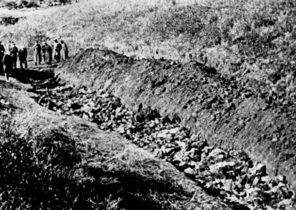
Looking today on our planet, amazed at how unique humanity is. We are the only species on earth who writes books, conducts experiments, and builds skyscrapers. Should be, our intellect helped us in the process of evolution. We can assume that thanks to him, we are better hunted and not allowed to hunt themselves. More importantly, our developing intelligence allowed the first people to compete with each other. We have evolved to be reasonable and not to lag behind all the others that have also evolved, becoming more intelligent. More smart and clever people attract other and more effectively fight for status within complex social groups. It is well known that people won the contest of intellects, and this has led to the rapid development of the ability to learn. But less is known about how the needs of women in walking and running helped the flourishing of the mind.
In many ways, our mental abilities are developing because of increasing brain size. Even if you look at the differences between people, difference in intelligence by 16% due to the size of the brain. The brain larger is the easiest way to become smarter. And when the brain is increased, and increases the size of the female pelvis because the woman has to give birth to all these big kids.
The problem is that here involved another evolutionary pattern — walking upright on two legs. This could happen for a variety of reasons. Like most theories based on hypotheses about the benefits of preservation, this theory is highly controversial. But it is clear that the need for bipedalism the pelvis smaller. Thus, there were two evolutionary trends are divergent in nature. The result is a delicate balance, when a woman can walk and run, and at the same time to give birth to children with very large heads. If the pelvis in women even more, she would not be able to walk well and run. Payment for this balance was security. The birth of a person is much more dangerous than any other Primate, and apparently the reason lies precisely in this. (The fact that many women die in childbirth without the aid of modern medicine, is a symptom of how our view of important reason.)
This kind of stalemate pushes human innovation that can be considered “constructive.” Or at least creative to the extent that such may be the evolutionary process without clear objectives and without a guiding intelligence. Evolution has found some very important mechanical tricks to circumvent these limitations: the skull of a newborn consists of parts which move during childbirth; the pelvis of the woman temporarily diverges at delivery; and the space for the brain in infancy greatly increases. But another key device has become the method of operation of the brain itself. Evolution makes man to learn what he needs in the world, instead of giving him the innate skills.
The chick begins to walk in search of food after a few seconds after it hatches from the egg; and the foal begins to run, when he was a few years. But man it takes years and years to become independent. Traditionally, parents actively care about their children until puberty; but in modern times this care can last as long as the child does not finish the graduate school at the age of 33 (and maybe this only happened to me?). This is partly due to the fact that our brain is underdeveloped until we become adults. As noted by anthropologists, Richerson and Boyd, “we are the most brainy and the most slow in the development of the members of the order of the most brainy and the most slow in its development in mammals”. We are born knowing very little, but we have incredible abilities to learn. And if people are getting smarter after birth, his brain at birth may be less, and it allows you to avoid the problem with the size of the pelvis. And when a child is born, his brain is increasing rapidly.
We are not perfect at birth, but we can adapt to almost whatever we can confront the world. One implication of this feature is that babies that are born in a very different environment from the Kalahari desert to the Arctic can learn to live there. If we were more competent at birth, that is, would be selaroides, we would restrict more than the narrow confines of the environment. Further, we live in a technological environment, filling the world with culture and technology that children take for granted, and then, they develop in adulthood. The result is a chain of positive feedback. It would have been impossible without a long stage of knowledge, which is used by people.
If we walked on all fours, pelvis in women would be higher. He would not have limited the size of the brain and in our mind it would be more innate cleverness and ingenuity that are specific to a particular environment. But rolling intelligence it would have been less. It just so happens that we are so smart thanks to some commonplace biomechanical needs. As in many situations that require a creative approach, the limitation has led to a productive solution.
Paradoxically, but our complete inability to take care of yourself in infancy did our genius.
Jim Davis — associate Professor of the Institute of cognitive science at Carleton University.







